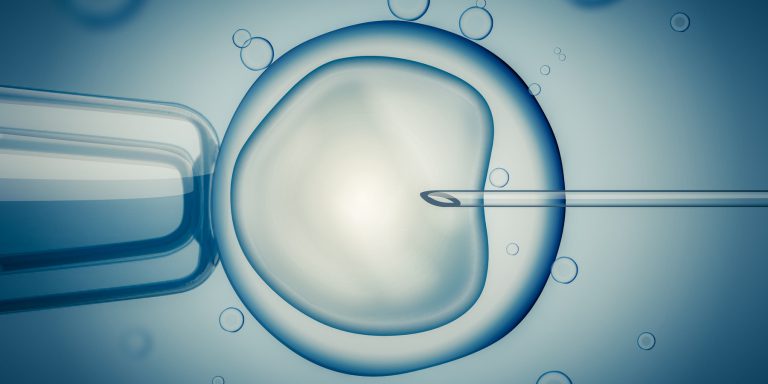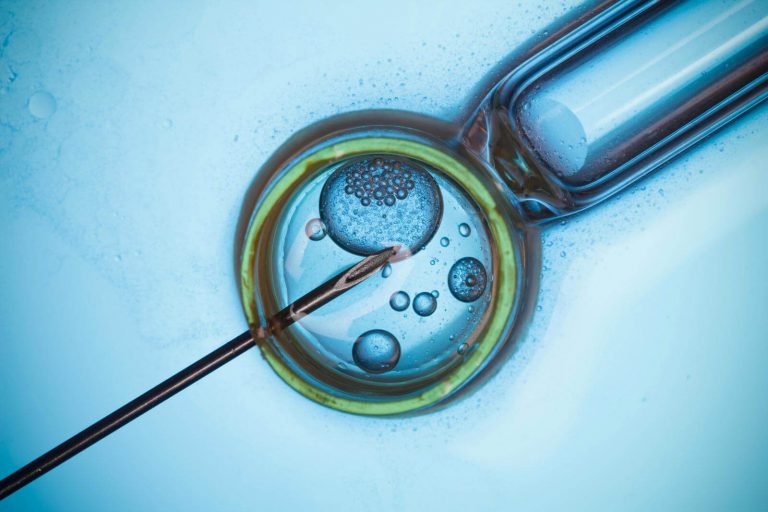Intrauterine Insemination
Intrauterine insemination, or IUI, is a medical procedure designed to help those diagnosed with infertility have a baby. It is one of the simplest and least expensive methods of treating infertility. The procedure involves inserting sperm directly into a woman’s uterus around the time of ovulation (egg release). This improves the chances that more sperm will be able to reach the egg.
An IUI procedure may be helpful in a variety of cases, including for couples with unexplained infertility, mild male factor infertility, cervical factor infertility, or issues with ovulation. It is also used for women who want to use donor sperm to become pregnant. In cases where IUI may not be helpful, your doctor may recommend a more advanced and expensive procedure called in vitro fertilization (IVF).
How Does IUI Work?
IUI begins by determining when ovulation will occur for the woman. A woman may be given hormones to stimulate her ovaries to get many eggs ready, which will increase the chances of successfully getting pregnant. She is then monitored for signs that ovulation is nearing.
When the doctor can tell that the woman is about to ovulate, a semen sample is collected from the man. The semen is then “washed” in a lab and the highest quality sperm are collected for use.
The doctor inserts high quality sperm directly into a woman’s uterus.
The IUI procedure takes just a few minutes to complete. The doctor first inserts a speculum (a medical tool) inside the woman’s vagina to view her cervix. Next, the doctor inserts a catheter (a narrow tube) through her cervix and inserts the washed semen directly into her uterus. The goal of this procedure is that the sperm will swim up to meet the released eggs and a normal pregnancy will occur.
IUI Success Rates
IUI success depends on various factors, including fertility medication used, reason for infertility, and age. Women under 35 years of age have a 10-20% chance of pregnancy. This decreases to 10% in women aged 35-40, and drops to 2-5% in women above age 40.
There are cases where IUI treatment may not be a good choice. For example, it does not help women with problems such as severe fallopian tube disease, and it does not work well for men with a low sperm count or who have slight sperm abnormalities. Therefore, it is important for doctors to conduct several tests before attempting IUI treatment, to better understand your fertility potential.
IUI Cost
Across the U.S. the average cost of IUI is $865. However, the price could vary widely depending on your location. When looking at the cost of any fertility treatment it is important to consider what is and isn’t included. One reason for the wide range of IUI costs is that some clinics might include things like medication and blood work in the price, while others charge you separately. IUI costs significantly less money than IVF, but it also has a lower success rate. If you try IUI three times unsuccessfully and then move on to IVF, you’re adding a few thousand dollars to your total cost of treatment, rather than saving money.
Is IUI Right for You?
Results from diagnostic tests conducted in both the male and female partner can help you and your doctor decide whether you are a good candidate for IUI, or if another treatment such as IVF might be more successful. Scientists are continually developing more innovative tests to assess fertility potential to help make this important decision. Take for instance tests that look at sperm at the level of the DNA. These tests can assess factors associated with infertility that cannot be detected in a standard semen analysis.
Knowing more about your fertility when making treatment decisions will help you make informed choices that could save you time and money. Be sure to ask your doctor about testing and treatment options that can help you achieve a successful pregnancy.







